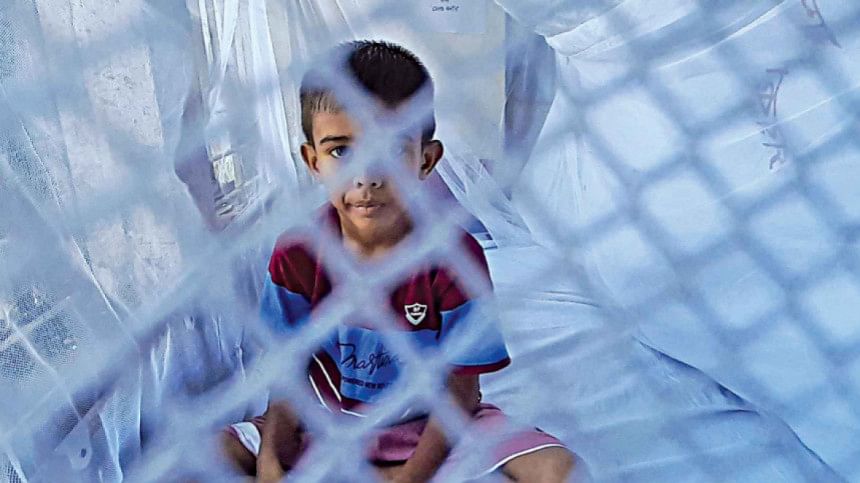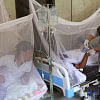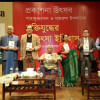Danger of dengue outbreak looms large

The country has already seen the death of 12 dengue patients before the beginning of the monsoon, while 1,261 others were hospitalised till yesterday. The numbers indicate alarming signs of a massive dengue outbreak this year.
Experts urged the city corporations to take necessary steps to contain the mosquito-borne virus from spreading. They also urged the government to pay more attention to areas outside of Dhaka, as the number of dengue patients is simultaneously increasing outside the capital.
According to the Directorate General of Health Services (DGHS), 31 dengue patients -- of whom, five are from outside Dhaka -- were hospitalised in the last 24 hours till yesterday morning. The total number of dengue cases this year outside Dhaka was 525 till yesterday.
Surveillance is an important aspect, in which we are lagging. It is also important to know the types of active viruses based on their locations to take proper control measures.
The total number of dengue-related deaths last year was 281, while 62,382 cases in total were recorded. Of them, 23,162 were from outside Dhaka.
Entomologist Kabirul Bashar said the situation is still under control but the number of patients is increasing every day.
"A higher density of Aedes mosquitoes have been noticed outside Dhaka, especially in Chattogram and Barishal, compared to the previous months," he said.
Bashar suggested conducting breeding source management which is very important to control Aedes mosquitoes on both household and organisational levels. "Raising awareness is also necessary."
"City corporations can use Novaluron tablets at places where it is not possible to remove stagnant water sources, such under construction buildings," he added.
Entomologist GM Saifur Rahman of National University said steps taken by the city corporations are not nearly enough to control the population of Aedes mosquitoes.
He also suggested involving all the relevant government organisations to get better results instead of depending only on city corporations and the health directorate.
"Surveillance is an important aspect, in which we are lagging. It is also very important to know the types of active viruses based on their locations to take proper control measures," he added.
Brig Gen Md Zobaidur Rahman, chief health officer of Dhaka North City Corporation, said they are continuing their anti-mosquito drive around the year.
"We are mainly focusing on the cleaning activities. We are also emphasising awareness campaigns. We plan to purchase Bti following the USA's experience of biologically controlling mosquitoes," Zobaidur said.
A higher density of Aedes mosquitoes have been noticed outside Dhaka, especially in Chattogram and Barishal, compared to the previous months.
Bacillus thuringiensis (subspecies israelensis), also known as Bti, is used as a larvicide to kill mosquito larvae before they can grow into adult mosquitoes.
Dr Fazle Shamsul Kabir, chief health officer of Dhaka South City Corporation, said since the beginning of this year, they have been conducting awareness campaigns in every DSCC ward and plan to extend them in educational institutions as well.
"We are also conducting our regular anti-mosquito drives," he added.
Kabir said they will hold an advocacy meeting involving all stakeholders, such as Rajuk and REHAB on August 23.
"We are also issuing letters to all the organisations asking them to destroy mosquito breeding sources at their houses or quarters. We will conduct mobile court drives strictly from June and take action against those responsible if we find Aedes mosquitoes or larvae," he added.

 For all latest news, follow The Daily Star's Google News channel.
For all latest news, follow The Daily Star's Google News channel. 











Comments